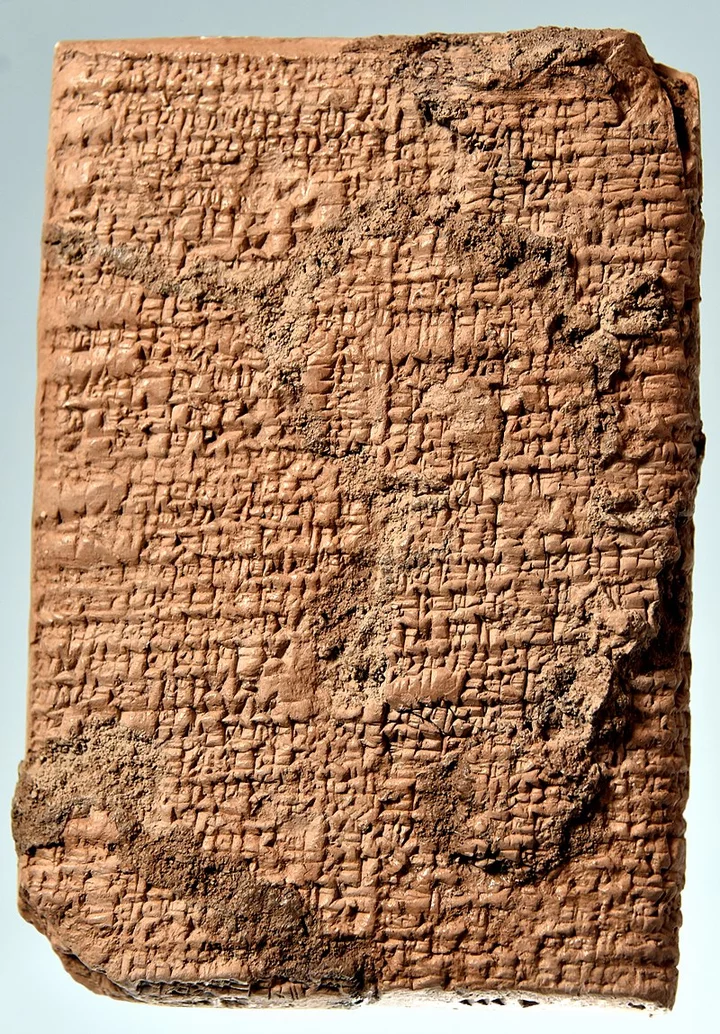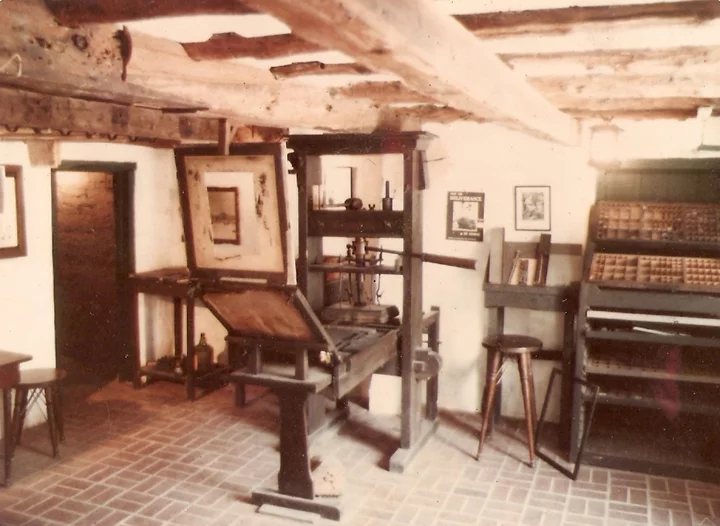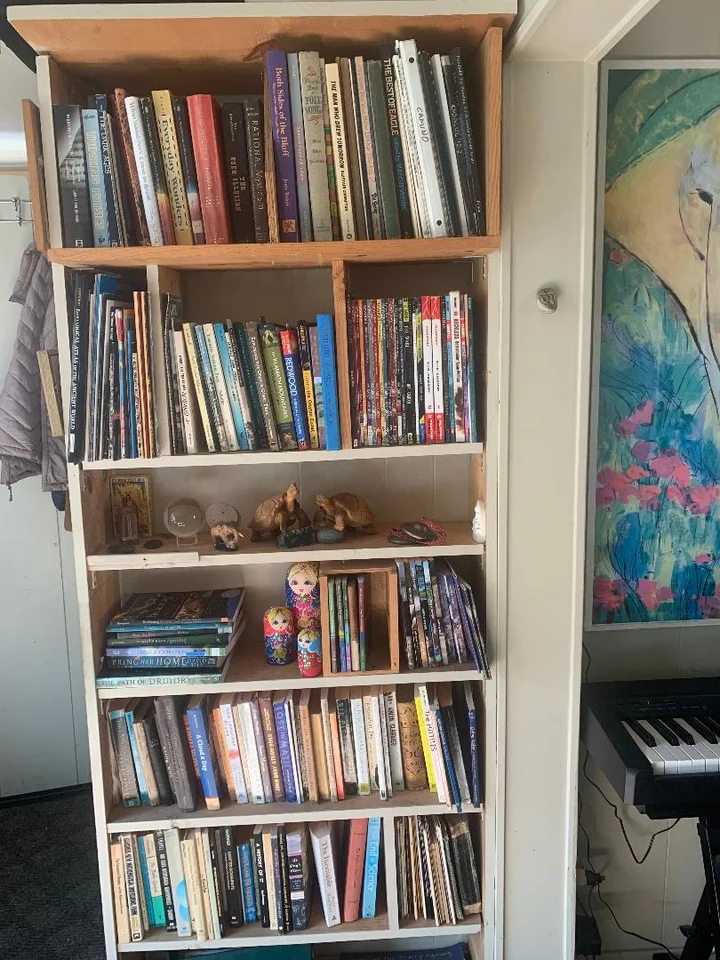“Outside of a dog, a book is man’s best friend. Inside a dog it’s too dark to read.”
— Either Groucho Marx or Jim Brewer
###
Books are an intrinsic part of my life: I read them, I write them, I trade them, I steward them (in the Little Free Library in Old Town Coffee & Chocolates), I borrow them (from the library), I refer to them (in the Humboldt Room of the library), I edit them, I get them printed and published, I’m never without one. Or 10.
Books, in some form, have been around for at least four thousand years. For instance, we have an alabaster disc naming Enheduanna as the author of poems written, in cuneiform, on the disc. She was priestess of the moon god Nanna and daughter of Sargon the Great (2340-2285 B.C., founder of the Akkadian Empire. Enheduanna wrote more than poetry: her Ninmeshara, copied on at least 100 clay tablets, is a lengthy account of a revolt against her nephew, for instance.
For the world’s first long book, that is, epic, the earliest of these that’s survived the millennia is that of Gilgamesh, which chronicles the fantastic adventures of the king of Uruk and his pal Endiku, including the Flood Story, plagiarized by the writers of Genesis over a thousand years later. The oldest surviving clay tablets of the Epic of Gilgamesh date to around 1800 B.C., although the most complete versions are more recent copies from Ninevah. Soon to follow were Homer’s Iliad and Odyssey.
The story of Gilgamesh and Aga, cuneiform on a baked clay tablet, about 1800 BC. Photo: Osama Shukir Muhammed Amin FRCP(Glasg), CC BY-SA 4.0, via Wikimedia Commons.
All of these were hand-copied until about a thousand years ago, with the first attempts at mechanical copying in China and India. Then came the breakthrough year, 1455, with Johannes Gutenberg’s (1398-1468) mechanically-printed 1,200-page Bible. Once the dam was broken, the flood poured out. Within 50 years of Gutenberg’s Bible, over 250 printers were furiously at work all across Europe using his technology. Historians estimate that 15 million books were printed mechanically between 1455 and 1500, more than the sum total of all books copied manually before then.
Replica of Gutenberg’s press, The Featherbed Alley Printshop Museum, St. George’s, Bermuda. Photo: Aodhdubh at English Wikipedia, CC BY-SA 3.0, via Wikimedia Commons
Today, the business of books — real, paper, dead-tree books — is booming. Each year, almost a billion physical books are sold, bringing in revenues of nearly $10 billion. And no wonder! The magic of it all! To carry around, perhaps as a paperback in one’s pocket, the story of a life, drama, conflict, instructions on how to succeed in life & love, the history of a town or the world or the universe, the wisdom of those who lived long ago, a Bible or Book of Miracles or the Tao, the imaginations of futurists and fantasists … and all for free, from a library; or for peanuts, from a secondhand store; or for the price of a decent meal out if you want the latest hardbound best-seller.
Somewhere in every book there’s a gem to be uncovered, often a tiara’s worth of precious stones. Here’s what I found in the last one I read, Elizabeth McCracken’s The Hero of this Book, a tribute to her late mother, buried in an otherwise unassuming paragraph: “Her memory for unhappiness and misery was terrible.” To have that inscribed on one’s gravestone! Or this speaks to me, a wannabe “good writer”: “I don’t think writing is that hard, as long as you’re comfortable with failure on every single level.” (See Hemingway: “It is easy to write. Just sit in front of your typewriter and bleed.”)
A few years ago, I discovered graphic novels — what I’d previously spurned as “comics” — starting out with arguably the best of the best, Neil Gaiman’s Sandman series. What fun! Great storytelling in words and pictures! Now I never travel without at least one new graphic novel to savor after dark, before sleep, to kickstart my dreams.
So many books, so little time, so my two bits of advice to readers. One: read everything and anything, put nothing off limits. Two: Don’t keep reading a book if you’re not enjoying it. Life’s short. Move on to the next one.
You can tell a lot about a person by what’s on their bookshelves…



CLICK TO MANAGE